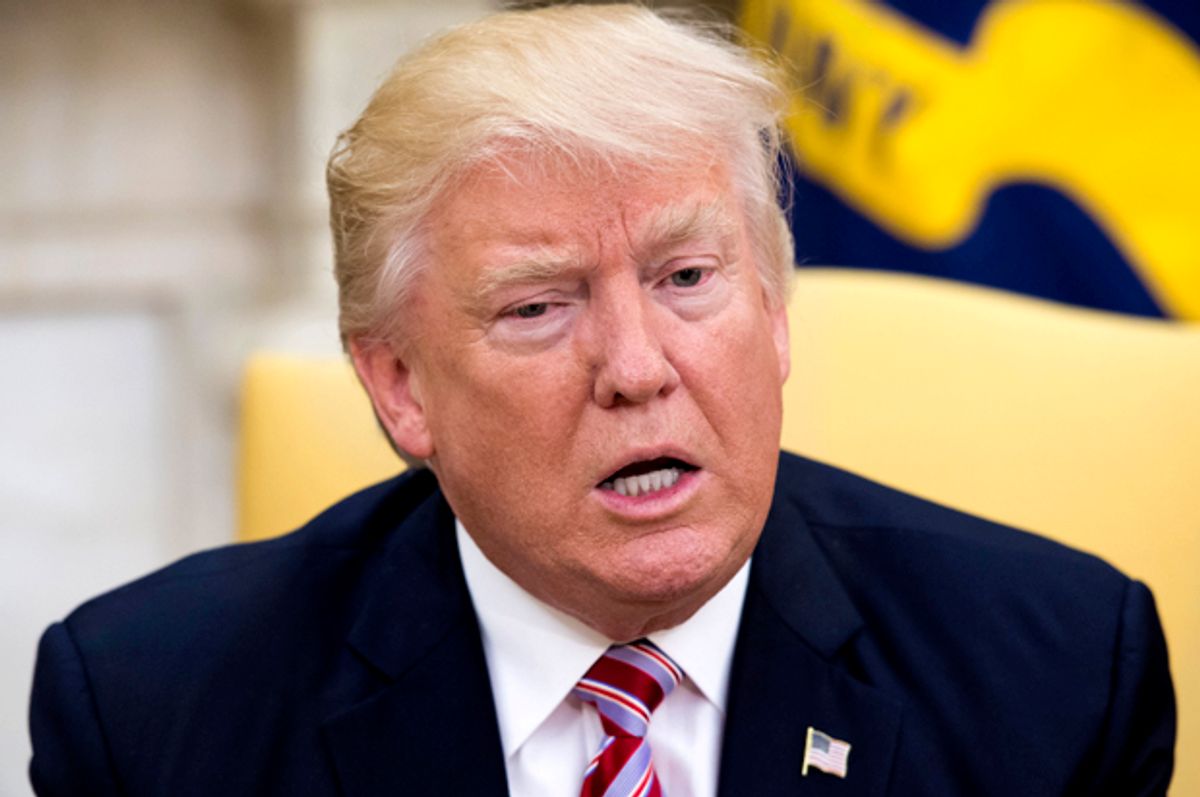An attorney who was helping Donald Trump submit financial disclosure forms earlier this year tried to avoid making the president put his signature to them certifying that the information was accurate.
Sheri Dillon, a tax lawyer working for Trump in his private citizen capacity, told an official working for the Office of Government Ethics that she did not think it was necessary for the president to sign his personal financial disclosure form for the year 2016 since he was only doing so voluntarily.
[salon_video id="14769228"]Walter Shaub, the director of the agency, wrote in a letter to Dillon that unless Trump was willing to certify the accuracy of his filing, the Office of Government Ethics would not be able to assist Dillon in her efforts to submit the disclosure.
"As we discussed, OGE will provide this assistance on the condition that the President is committed to certifying that the contents of his report are true, complete and correct," Shaub responded on May 10. "When we met on April 27, 2017, you requested that he be excused from providing this certification."
The Associated Press obtained Shaub's letter as well as additional correspondence he and Dillon had through a Freedom of Information Act request.
Presidential candidates are not legally required to disclose their personal assets but it is customary for them to do so by filling out the same form that are required of federal office-holders.
The form is a much more general than a tax return which all Americans are required to file with the Internal Revenue Service. By custom, presidents and aspiring presidents have voluntarily provided their income tax forms to the public. Trump has refused to release any of his tax filings, saying that he was under audit.
The first president to release his personal income tax forms was Richard Nixon in 1973.
"People have got to know whether or not their president is a crook," he said at the time. "Well, I am not a crook."



Shares